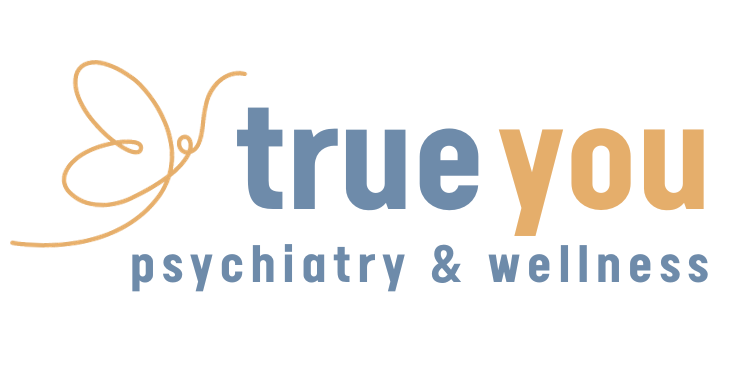Gabapentin Ruined My Life - How To Find A Way Out?
Withdrawal signs are worse in the morning hours.
Starting your day feeling dizzy, drowsy, unable to think clearly, and concentrate is hard.
However, this can be the bitter truth for those who are stuck in the cycle of gabapentin withdrawal.
But there is hope.
If you take time, you will understand the nature of the withdrawal symptoms, and by getting the right help, you can be free.
If you think "Gabapentin ruined my life" let's explore the depths of gabapentin withdrawal, its warning signs, and the path to recovery that awaits you on the other side.
What is Gabapentin and How Does It Work?
Gabapentin is an antiepileptic drug commonly used to control neuropathic pain caused by damage to the nerves and treat epilepsy in adults and children older than 12.
It is also known as an anticonvulsant or anti-seizure medicine.
This is accomplished through channeling on an extensive protein known as the alpha-2-delta subunit of voltage-gated calcium channels in several CNS regions.
Gabapentin suppresses these calcium channels' activity, leading to less neuron firing.
Therefore, it would help manage neuropathic pain.
It also helps regulate electrical activity in the brain, thus preventing seizures.
The U. S. Food and Drug Administration (FDA) has approved gabapentin for the following uses:
Management and relief of postherpetic neuralgia (nerve pain that may occur after shingles).
Management of diabetic neuropathy, which is nerve damage caused by diabetes.
Second-line treatment for partial seizures in adults and patients above 12 years of age
Although gabapentin is indicated for the listed conditions, the drug is also prescribed for other purposes, such as off-label use in the management of fibromyalgia, restless legs syndrome, and different types of chronic pain.
Common Reasons People Take Gabapentin
Neuropathic Pain:
Gabapentin is usually used to manage neuropathic pains induced by conditions such as diabetic neuropathy, shingles, and fibromyalgia.
It effectively regulates excessive nerve impulses and decreases sharp, burning, or stinging feelings.
Seizures:
When used as an anticonvulsant drug, Gabapentin is used to control and minimize the occurrence of seizures in epilepsy.
This is done by preventing abnormal electrical stimulation in the brain from occurring.
Restless Leg Syndrome (RLS):
Because it affects the nervous system, this medication effectively reduces the discomfort and urge to move associated with RLS.
Anxiety Disorders:
Although the FDA has not approved gabapentin for anxiety disorder treatment, some physicians prescribe the drug for this purpose.
It may assist in tackling cases of excessive worrying, fear, and muscle tension.
Hot Flashes:
Gabapentin has proved to be effective in minimizing the occurrence and intensity of hot flashes in women experiencing menopausal symptoms or women undergoing treatment for breast cancer.
Alcohol or Drug Withdrawal:
Sometimes, it is prescribed for alcohol, opioid, or other addictive substance withdrawal syndrome during the detoxification stage.
Different Types of Gabapentin You Should Know About
There are a few different formulations of gabapentin available, each designed to meet specific needs:
Fast-Acting Gabapentin
Gabapentin, in its conventional or regular version, has a fast onset of action as it gets rapidly absorbed in the body to treat ailments such as nerve pain and seizures, among others.
But again, it only lasts for several hours. Thus, one has to take it several times within a day.
Extended-Release Gabapentin For Whole Day Painkiller
The encapsulated gabapentin, when used, disintegrates slowly in the stomach and releases the medicine into the bloodstream slowly.
It will provide for steady, sustained release to help manage chronic conditions without repeated daily dosing.
Liquid Gabapentin For Those Who Do Not Like Taking Pills
For individuals who find it challenging to take their medications in solid form or require customization of their doses, gabapentin is available in an oral liquid suspension.
It can also be incorporated into beverages or other dishes if necessary. This form is said to be swallowed a little faster than capsules.
The Risks: Gabapentin's Not-So-Great Side
While gabapentin can be an effective treatment for certain conditions, it's important to be aware of the potential risks and side effects associated with its use. Here's what you should know:
Is Gabapentin Safe?
Gabapentin is generally considered safe when taken as prescribed and under medical supervision.
However, it can cause side effects, especially with long-term use or when combined with other medications or substances.
Common Side Effects You Might Experience:
Feeling Dizzy or Drowsy
Gabapentin can cause you to become more dizzy or drowsy, especially in the first few weeks of treatment.
This may impair your balance and response times, making you more prone to tripping or having an accident, especially when operating a vehicle or equipment.
Mood Fluctuations and Variations in Emotions
It’s also noteworthy that some people note the mood changes.
For example, they can become irritable or experience the shades of sadness and anxiety.
Finally, some people report that gabapentin causes difficulty in maintaining stable mood states and may lead to depression or increased feelings of anger.
Upset Stomach or Nausea
Some of the side effects of gabapentin include gastrointestinal problems such as nausea, vomiting, or constipation.
Respiratory Problems Rare but Possible
Although this is a very rare occurrence, gabapentin can slow down your breathing.
It could lead to respiratory depression.
This is especially true for those with other underlying respiratory conditions or taking other drugs with respiratory depressant effects.
Heart Health Concerns
Adverse cardiovascular effects include QT interval prolongation and arrhythmias that have been reported in some patients taking gabapentin.
This is more common if you already have heart problems or if you take other medicines that impact your heart.
One should always report any new or altered manifestations of heart condition(s) while taking gabapentin.
Kidney Problems Over Time
Gabapentin use for an extended period can strain kidneys, especially those with kidney disease.
In the long run, this may cause the kidneys to be less effective. If you are using gabapentin for a long time, you should (have your kidney function monitored regularly by your doctor
Muscle Weakness and Coordination Issues
Potential adverse effects of gabapentin include muscle hypotonia, fasciculations, and ataxia.
This side effect puts a person at greater risk of falls or injuries, particularly if the patient is elderly or prone to developing balance issues.
You could also experience challenges in activities that require hand skills, such as typing on the keyboard and writing, among other things.
Memory Fog and Confusion
Although rare, some individuals take gabapentin and develop symptoms such as confusion, poor concentration, or memory loss.
This can lead to having difficulty concentrating on one’s duties, work, or daily operations.
This side effect can, however, be more significant, especially when gabapentin is ingested in large amounts.
Impact on Pregnancy and Fertility
Some studies show that it may raise the likelihood of the baby being born with a malformation or complications during pregnancy.
It is preferable to avoid the use of gabapentin while pregnant or trying to get pregnant. However, a doctor should be consulted to discuss the pros and cons of using the drug.
What Happens When You Take Gabapentin Long-Term?
Gabapentin can induce the development of physical dependence or addiction, especially when used for the long term.
Thus, gabapentin as an option of treatment shouldn’t overshadow the fact that it has possible risks and side effects.
It is, therefore, recommended to seek professional advice from a doctor who is well informed about psychiatric medications before taking any medication, especially during pregnancy.
Can You Get Addicted to Gabapentin?
It is possible to become addicted to gabapentin.
Gabapentin is a drug that is used to treat nerve pain, seizures, and some mental disorders, and it is not a controlled substance. Still, it does have the potential to be addictive.
The primary effect of gabapentin is not to bring about a euphoric state, which is characteristic of opioids or benzodiazepines.
However, psychological dependence or misuse can happen especially in instances where the patient has had prior substance abuse problems.
Gabapentin is involved in the modulation of specific receptors of GABA, which send signals to the brain to control the velocity of nerve development and alter pain or seizures.
When used for a long time, the brain can develop some tolerance to the impact of the drug on the body.
Gabapentin withdrawal symptoms are possible if the medication is stopped abruptly, especially after long-term use Withdrawal symptoms include anxiety, irritability, increased sweating, nausea, and problems in sleeping, which indicate that the body has developed dependence.
While the abuse of gabapentin is much lower as compared to most other substances, there is still a possibility for its misuse.
Users of gabapentin for non-prescribed purposes or those who use the medication along with other substances will magnify the effects, which can result in abuse and even overdosage.
What Happens During Gabapentin Withdrawal?
After chronic, daily use, going “cold turkey” or abruptly stopping the gabapentin is likely to elicit withdrawal symptoms ranging from mild discomfort to severe.
The severity and duration of these withdrawal effects vary according to the dose, duration of the gabapentin use, individual characteristics, and health condition.
Here’s what to expect during gabapentin withdrawal:
Feeling Anxious or Irritable
Common symptoms of gabapentin withdrawal include anxiety, irritability, and mood swings.
Sudden cessation of gabapentin might make you feel agitated, fidgety, or an overall feeling of nervous energy.
This anxiety might be mild, but in some cases may lead to panic attacks,.
Inability to Sleep
Sleep disturbances are one of the most annoying withdrawal symptoms experienced by those who stop taking gabapentin.
Some of the common sleep disturbances include lying awake for hours trying to fall asleep or waking up several times during the night.
This can cause you to feel more tired and fatigued, which also intensifies other withdrawal symptoms.
Nausea and Upset Stomach
Gastrointestinal problems like nausea, vomiting, and diarrhea are common signs of gabapentin withdrawal.
Hot Flashes and Sweating
Perspiration and excessive sweating accompanied by hot flashes and cold flashes are due to the dysfunction of the body's internal heater or thermostat during withdrawal.
These rapid temperature fluctuations can make you feel uncomfortable, especially if they are associated with menopausal symptoms.
Achy Muscles and Tension
It is possible to suffer from muscle spasms, joint pain, and general body pain.
You may feel stiff or sore, particularly if idle for quite some time.
Shakiness or Tremors
Withdrawal can cause trembling or shaking in different areas of the body, particularly the hands and arms.
These movements are unpleasant and may cause difficulties with muscle coordination and hampered task performance.
How to Treat Gabapentin Withdrawal Symptoms
Treating gabapentin withdrawal symptoms requires a comprehensive approach that addresses both the physical and psychological aspects of the dependency.
Here are some of the most effective treatment options:
Finding the Right Treatment
The first step is to identify the right treatment center or healthcare provider that can help in managing such withdrawal symptoms.
Patients should seek a medical provider who understands gabapentin dependence and how to help someone safely navigate these symptoms.
Tailored Treatment Plans
Everyone is unique and requires individualized dosage adjustments to successfully taper off any psychiatric medications.
One can avoid experiencing horrible withdrawal symptoms if one has the right professional guidance along with a individualized treatment plan.
With the help of such professionals as Dr. Giordano, people can be coached to stop this cycle.
She does not use a one-size-fits-all approach, but works with the unique needs of the individual.
A Mind and Body Approach
To safely reduce or stop gabapentin, one must utilize a holistic approach.
(A holistic approach helps you to see the big picture. This is significant because, as human beings, we are complex creatures. There are different facets that impact our mental well-being. Your diet, exercise, sleep, relationships, etc. need to be addressed for a successful outcome. A holistic approach supports the mind, body, and spirit, in every step of your recovery.)
Personalized Support for Gabapentin (Dependency)
One-on-One Treatment with Dr. Giordano
During the individual sessions with Dr. Giordano, you will be able to express your concerns or worries about your particular situation in a secure and private environment.
She will take the time to hear your concerns and guide you step-by-step in your healing process.
These sessions enable you to develop a treatment plan based on your individual needs to help you be as healthy as possible, as naturally as possible.
She takes the time to get to the heart of the matter so you can find and enjoy true well-being.
Support Groups
Another indispensable aspect is the great importance of group support while healing.
During these meetings, you can discuss your problem with others facing the same issues and experience validation and support from those who truly understand.
There is tremendous value in connection and community which you can find through well-run support groups like Dr Giordano's group.
How Therapy Helps You Heal
CBT (Cognitive-Behavioral Therapy): CBT helps you identify and change negative thought patterns and behaviors that contribute to your addiction.
DBT (Dialectical Behavior Therapy): DBT teaches you mindfulness, emotion regulation, and interpersonal effectiveness skills to manage difficult emotions and situations.
Motivational Interviewing (Finding Your Inner Strength): Motivational interviewing helps you explore and resolve ambivalence about change, empowering you to take control of your recovery.
Holistic Healing for a Full Recovery
Yoga and Mindfulness: These practices help cultivate present-moment awareness, reduce stress and anxiety, and develop healthier relationships with your body and mind.
Acupuncture and Other Relaxation Therapies: Acupuncture and other relaxation therapies can help alleviate withdrawal symptoms, reduce cravings, and promote a sense of calm and balance.
Learning to Calm Your Mind and Body: Our holistic approach incorporates practical techniques for self-regulation, such as deep breathing exercises, meditation, and progressive muscle relaxation.
Staying on Track After Treatment
Coming off gabapentin is an ongoing journey that requires commitment and support. Here are some key strategies to help you stay on track:
Building a Recovery Plan That Works for You
Every patient should have an individual strategy to support their healing process to achieve sustainable results.
Discuss with your holistic provider to find the most suitable approach to cater to your needs, and goals.
This plan should also involve different ways to, minimize stress, and create a circle of supportive providers, therapists or coaches.
Ongoing Support and Counseling
Recovery from psychiatric medication dependence) is not a one-time event but a journey that (can last years Counselling or support groups can help ensure you are on track and to learning new ways of coping.
Having friends and other individuals to turn to for support and encouragement can assist one through the phases of the journey and its various trials and triumphs.
Family and Friends: Your Support System
Your friends and family can be of great help (if they can understand what you are going through. When this is possible,) their encouragement and understanding can greatly help in a sometimes desperate situation.
Ready to Start Your Recovery Journey?
Do you feel "Gabapentin ruined my life"?
We want you to know that at Trueyoupsych, we are here for you, ready and willing to help you every step of the way.
We offer holistic and effective individualized treatments focusing on both the body and the mind.
Our approach helps you safely manage (gabapentin tapering and) withdrawal symptoms.
You will receive medical consultation for managing (systemic dose reduction while being supported with various lifestyle and therapeutic interventions.
Trueyoupsych provides the necessary resources for safe tapering and discontinuation of gabapentin.
It is high time that you find relief and be free from dependence on) gabapentin. You can join the journey towards a better life by contacting us today. To learn more about our approach and to start your path toward lasting recovery, visit our blog.








